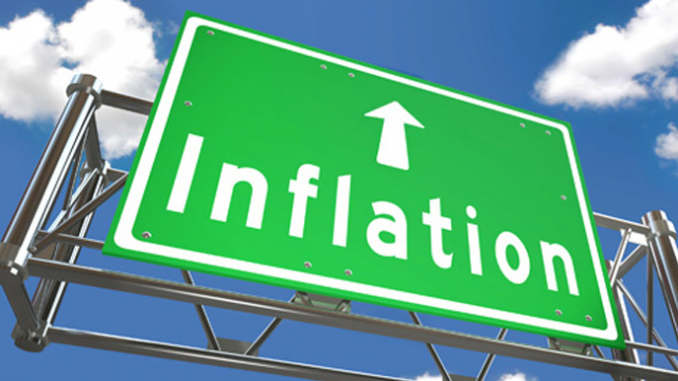
Analysts are worried that the rising headline inflation rate, which was put at 11.85 by November ending has eroded the real yields of local debt and could impact negatively on capital flow into the country.
According to analysts at the United Capital Plc, the average yield on short-term securities in the fixed income market continues to trade at a single-digit level.
“Notably, the yield on the 91-day bill closed at 5.06%, the 182-day bill closed at 5.49% and the 364-day bill closed at 7.01%.
“From a more technical point of view, the above implies that real yield on short-dated instruments continue to dip, now at -6.0% as PFAs and other institutional investors continue to pile up their funds on government bills,” they said in a note to clients on Wednesday.
Also, a fixed income specialist Abimbola Omotola said in a tweet on Tuesday; “latest inflation print implies real yield on the bellwether IY NTB (PMA) is now at a 9 year low of – 4.46%.”
Omotola said, “the market is barely paying attention to inflation expectation due to the liquidity glut in the money market.”
In his response to Omotola tweet, Segun Andrew another market analyst said; “Local investors are shrugging off fundamentally sound stocks and queuing up for investment option with negative real returns. No wonder the foreign guys are not willing to play aggressively,” Andrew tweet.
The Nigerian Bureau of Statistics (NBS) in its latest report on Tuesday said the country’s climbed to 11.85 percent in November, up 25 basis points from 11.61 percent in the previous month.
The food and core inflation sub-indices both accelerated 39 basis points and 12 basis points to 14.48 percent year-on-year and 8.99 percent year-on-year respectively.
Market observers said generally interest rate remains negative in the light of the latest inflation figure.
At the interbank market on Tuesday, the overnight borrowing cost declined further by 0.25 percent to close the market at 3.11 percent while the Open Buy Back (OBB) fell by 0.21 percent to close at 2.57 percent.
The average interest rate on savings in the market now ranges between 2.00 percent to 3.00 percent on term deposits with banks.
Investigation showed that many offshore portfolio investors are selling down their position in the debt market on the back of declining yields on both 1-year treasury bills and long-tenor bonds.
The capital flight in the wake of sell-off by investors has continued to impact negatively on the country’s external reserves and capital inflows.
Nigeria’s external reserves declined further to $39.06 billion by December 16, 2019, from $40.03 billion in November 15, this year.
Analysts said the noticeable decline in the country’s external reserves was due to capital flight by offshore investors as the local debt become less attractive.
The said it is natural for money to lookout for value and where it will be appreciated through higher returns, noting that most offshore investors are more interested in higher returns on their investments.
United Capital said the headline inflation rate will inch higher in December to 12 percent due to the closure of land borders by the government and year-end demand pressure subsist.
“By implication, the real yield on short-dated bills will worsen amid rising system liquidity,” analysts at the investment banking group said.
-Global Financial Digest






